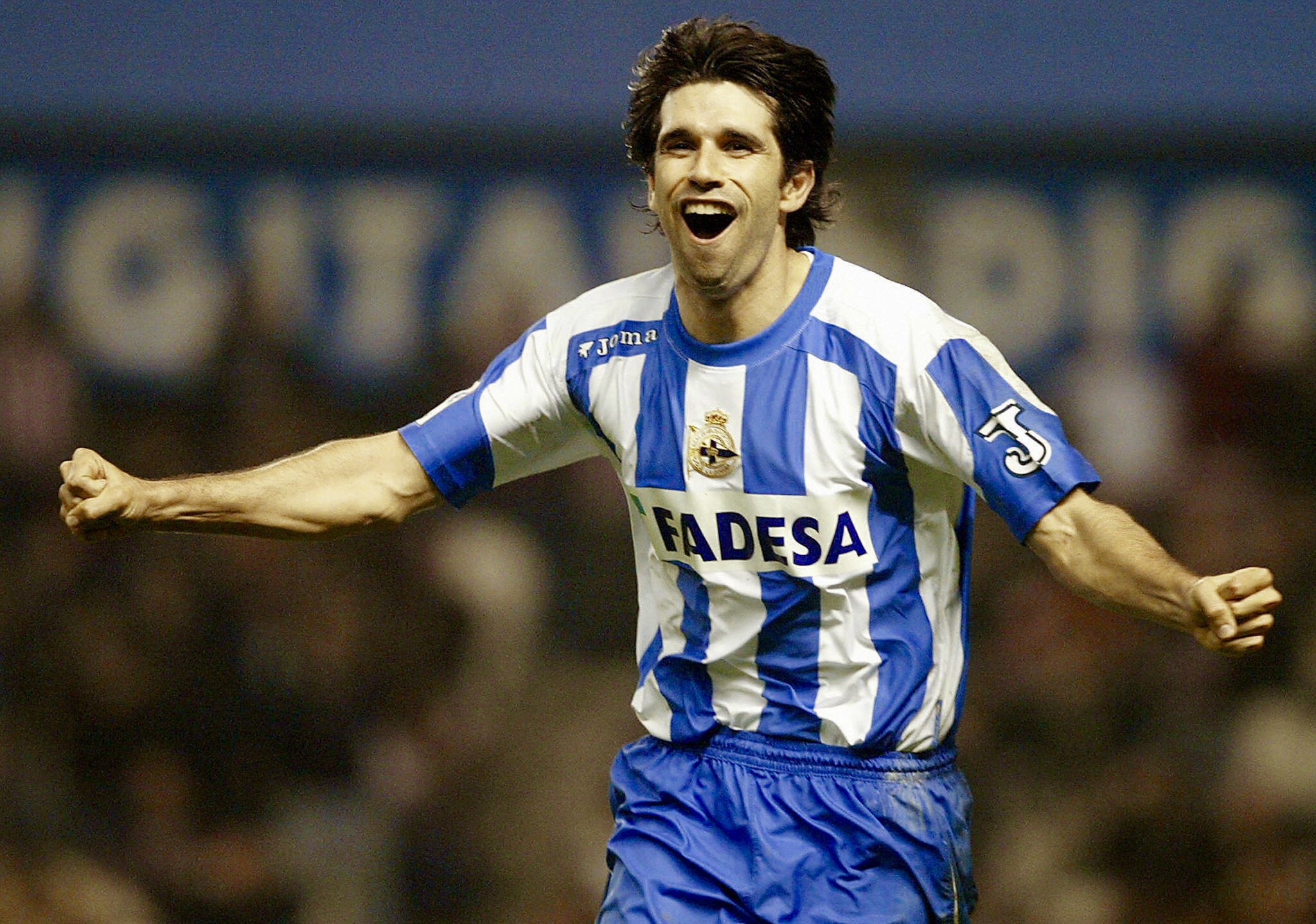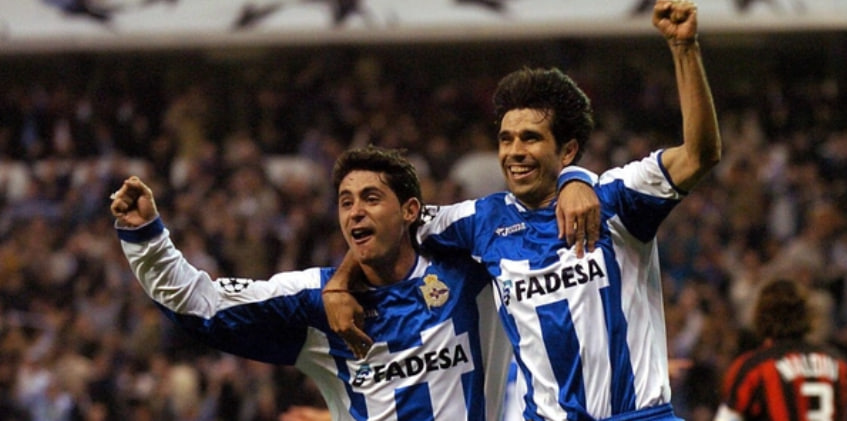In the world of soccer, there are players who, despite their notoriety, have deeply influenced generations. Juan Carlos Velelon is one such player. He never won the Ballon d’Or and rarely made the headlines, but he is an idol worshipped by the likes of legendary Spanish midfielders Iniesta and David Silva.
If you’ve ever watched a Las Palmas or Deportivo game, you may have noticed a player wearing the number 21, who looks a bit skinny, doesn’t run particularly fast, and is even a bit “bookish”. He doesn’t move as aggressively as the other players, and one might even wonder: can this guy really play professional soccer?

But when the ball comes to his feet, everything changes. This seemingly unassuming midfielder seems to be a different person. He can make short passes at such a fast pace that the opposing team can’t afford to foul him. He could deliver some incredible passes with marvelous arcs and tricky angles, so that even the spectators on the sidelines and the commentators in front of the TV could not predict what would happen in the next second.
His presence is like that of a magician who is on the green field but seems to be performing on the stage. Despite not being physically impressive, Belleron relies on thinking and skill. His brain spins fast, and his passes always find the best place to land, tearing the opponent’s defense apart.
During his time at Deportivo La Coruna, he moved his teammates around like a chess player, keeping the pace of the game firmly in his hands. And what’s amazing is that this high level of performance is something he can still do even in his 40s.
The Canary Islands’ “skinny guy”
Juan Carlos Belerón was born in 1975 and comes from the Canary Islands. His idea of soccer is slightly different from the rest of the Spanish mainland: the primary goal of playing is to “enjoy” it. This is a land of poets, painters and singers, but also of soccer artists like him. His nickname was “El Flaco”, which translates as “The Thin Man”.
He began and ended his career with his hometown team Las Palmas, moving through Mallorca, Atlético de Madrid, and finally La Coruña, where he spent 13 glorious years. Although he has only won two titles, the Copa del Rey and the Spanish Super Cup in 2001, his value is not measured by trophies.
Iniesta once said of him, “He’s one of the most talented midfielders around and is definitely worth every penny you pay to see him play.”
Master passer who influenced a generation
At the beginning of the millennium, the Spanish national team was struggling to establish a new generation of midfielders. Then-manager Camacho noticed early on the potential of technical midfielders like Bergeron, Guardiola and Fran. Although the attempts in Euro 2000 were not successful, it was these technical players who laid the foundation for the “passing and controlling era”.
After 2008, the Spanish national team relied on Xavi, Iniesta and others to start the era of world domination, but many people know that the inspiration for this style of pass-and-control is from Juan Belleron. He may not have been the man on the podium, but he was the one who sowed the seeds and guided the way.
The soul of Deportivo La Coruna
After leaving Atlético de Madrid, Vélelão had a career breakthrough in Galicia. Departing from Atlético de Madrid, Vélelão had a career in Galicia, where he was not a “superstar team”, and where manager Ireta was known for his low profile, he built a team that became one of the most exciting to watch in Europe.
Interestingly, this “Super La Coruna” doesn’t have the huge investment of Real Madrid, nor does it have the aura of a star like Barcelona, but it has repeatedly created surprises in La Liga and the Champions League.
They beat Manchester United and Arsenal in the Premier League in succession, and in 2002, they beat AC Milan 2-1 on the road, and the most classic is the 4-0 reversal of AC Milan in the second round of the knockout stage of the Champions League in 2004. Losing 1-4 in the first round, almost no one believed they could turn it around. And on that miracle night, Bellelong scored the crucial goal.
Although he doesn’t have the World Cup and Champions League titles like Zinedine Zidane, many Spanish journalists believe that his passing and organizing abilities surpass even Zizou. Roy Mackay has said that even though he has worked with many great players at Bayern and the Dutch national team, Bergeron is still the best midfielder he has ever seen.
A talent delayed by injuries
In 2006, Belleron suffered a serious knee injury, tearing ligaments that prevented him from playing for three years. He underwent three surgeries and many thought it was impossible for him to return to the field.
However, he made a “magical” comeback. By the time Spain won the Euro 2008, Belleón was getting back to form. Although he wasn’t recalled to the national team, his philosophy and style of play have been inherited.
Whether it was David Silva, or Cesc Fabregas or Cazorla, all of these technically brilliant and relatively small midfielders grew up under the influence of Velelon. Silva even wore the number 21 shirt for life in tribute to his idol.
Contrast and humility
Many have compared him to Zinedine Zidane, and his response is candid:
“I’m happy to be compared to Zidane, it’s a recognition. But he won the World Cup and the Champions League and I didn’t. From that point of view, we are still different.”
Bergeron is not the kind of player who piles up accolades with trophies, he is more of a “soccer artist”. His very existence is an interpretation of the beauty of soccer.
Summary: A sense of the future from the past
Juan Valeron’s career is not decorated with trophies or commercial packaging, but what he brings to soccer is an expression of “beauty”. His style seems to come from the future, but active in the past. His rhythm is slow but fast, and his passes are precise and picturesque, bringing pure soccer enjoyment to countless fans.
He may be the most underestimated person in Spanish soccer, but it is he who pushed forward the wave of pass-and-control soccer. His passing, rhythm, and vision are still imitated and learned from by future generations today.
If you love soccer, then the story of Velelon is worth knowing. He wasn’t the brightest star, but he was a beam of light that illuminated the future of Spanish soccer as a whole.
